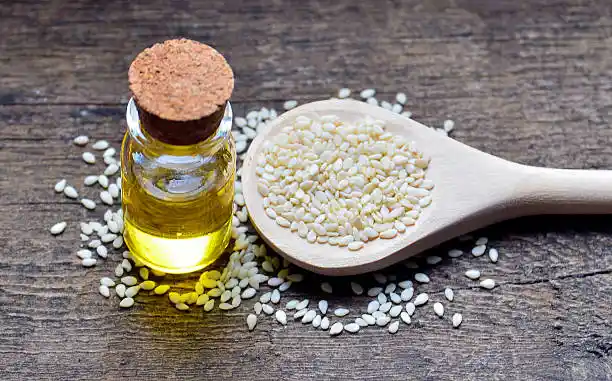Flaxseed Oil: Benefits of Flaxseed Oil — Plus How to Use It

Flaxseed oil, also known as linseed oil, is derived from ripened flaxseeds through cold pressing. This golden-hued oil is widely recognized for its exceptional health benefits, primarily due to its high omega-3 fatty acid content. Whether used in cooking, skincare, or as a dietary supplement, flaxseeds oil offers a range of advantages for overall well-being.
What is Flaxseed Oil?
Flaxseed oil is extracted from the seeds of the flax plant (Linum usitatissimum). Known for its rich nutritional profile, this oil is commonly consumed as a supplement or used in food preparations. Its popularity stems from its ability to promote heart health, reduce inflammation, and improve skin and hair.
Why Choose Flaxseed Oil?
Flaxseed oil is a natural source of alpha-linolenic acid (ALA), a type of omega-3 fatty acid that the body cannot produce on its own. This makes it an essential dietary inclusion, particularly for individuals seeking plant-based alternatives to fish oil. Moreover, flaxseeds oil is versatile, making it suitable for culinary, therapeutic, and cosmetic purposes.
Nutritional Composition of Flaxseed Oil
Flaxseeds oil is packed with beneficial compounds, including:
- Omega-3 Fatty Acids (ALA): Supports heart and brain health.
- Lignans: Plant compounds with antioxidant properties.
- Vitamin E: Promotes healthy skin and hair.
- Polyunsaturated Fats: Contribute to overall health and well-being.
Benefits of Flaxseed Oil
1. Promotes Heart Health
The omega-3 fatty acids in flaxseeds oil help lower bad cholesterol (LDL) levels and increase good cholesterol (HDL), reducing the risk of heart disease.
2. Reduces Inflammation
Flaxseed oil’s anti-inflammatory properties may alleviate symptoms of arthritis and other inflammatory conditions.
3. Enhances Digestive Health
Regular consumption of flaxseeds oil may improve gut health by promoting regular bowel movements and reducing symptoms of constipation.
4. Supports Skin Health
Topical application of flaxseeds oil hydrates the skin, reduces redness, and improves conditions like eczema and psoriasis.
5. Boosts Brain Function
ALA in flaxseeds oil supports cognitive health and may protect against age-related mental decline.
6. Promotes Healthy Hair
The oil nourishes the scalp, reduces dryness, and strengthens hair strands, resulting in shinier and healthier locks.
7. Aids in Weight Management
Flaxseeds oil may help reduce appetite and support weight loss by improving metabolism.
8. Provides Antioxidant Protection
Lignans and other antioxidants in flaxseeds oil protect the body from oxidative stress and free radical damage.
Uses of Flaxseed Oil
In Cooking
- Salad Dressings: Drizzle over salads for a nutty flavor and a dose of omega-3s.
- Smoothies: Blend into smoothies for added nutrition.
- Cold Dishes: Use in dips or sauces to retain its nutritional value.
Note: Avoid heating flaxseeds oil, as high temperatures can degrade its nutritional properties.
In Skincare
- Moisturizer: Apply directly to the skin for hydration and nourishment.
- Acne Treatment: Its anti-inflammatory properties help soothe acne-prone skin.
- Anti-Aging: Reduces fine lines and improves skin elasticity.
In Haircare
- Scalp Treatment: Massage into the scalp to promote hair growth and reduce dandruff.
- Conditioner: Use as a leave-in treatment for shiny and soft hair.
As a Dietary Supplement
- Capsules: Convenient for daily omega-3 supplementation.
- Liquid Form: Mix with water or juice for an easy intake.
Side Effects of Flaxseed Oil
While flaxseeds oil offers numerous benefits, excessive consumption or improper use may cause:
- Digestive Issues: Overconsumption can lead to diarrhea, bloating, or stomach cramps.
- Allergic Reactions: Rare but possible; perform a patch test before topical use.
- Bleeding Risks: High doses may thin the blood, so individuals on blood-thinning medications should consult a doctor.
- Hormonal Effects: Lignans may have mild estrogenic effects, so use cautiously if you have hormone-sensitive conditions.
How to Choose and Store Flaxseed Oil
- Opt for Cold-Pressed Varieties: Retains maximum nutrients.
- Look for Dark Bottles: Protects the oil from light-induced degradation.
- Check Expiry Dates: Flaxseeds oil has a short shelf life and should be consumed before it turns rancid.
- Refrigerate: Store in a cool, dark place to maintain freshness.
Comparison: Flaxseed Oil vs. Other Oils
| Property | Flaxseed Oil | Olive Oil | Avocado Oil |
| Omega-3 Content | High | Moderate | Low |
| Smoke Point | Low | Moderate | High |
| Best Use | Cold Dishes | Cooking and Dressings | High-Heat Cooking |
| Skin Benefits | High | Moderate | High |
Summary
Flaxseeds oil is a powerhouse of nutrition, offering a wide range of health, skin, and hair benefits. Its rich omega-3 fatty acid content makes it an excellent choice for heart health, inflammation reduction, and cognitive support. Whether used as a dietary supplement or applied topically, flaxseeds oil is a versatile and valuable addition to a healthy lifestyle. Use it wisely and enjoy its holistic benefits.
FAQs About Flaxseed Oil
Yes, but individuals with bleeding disorders or hormone-sensitive conditions should consult a doctor.
Typically, 1–2 tablespoons per day is sufficient for most adults.
It is best used in cold dishes, as heat can destroy its nutrients.



